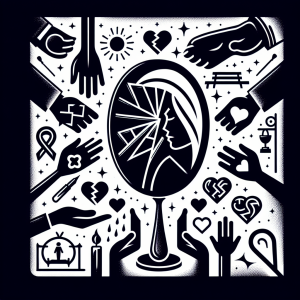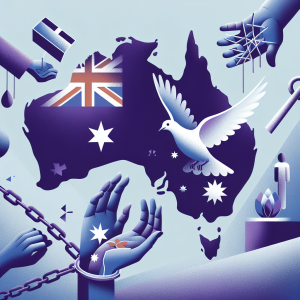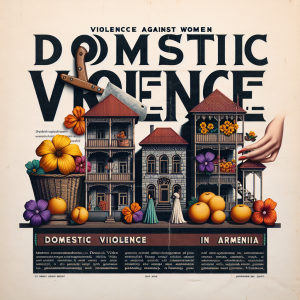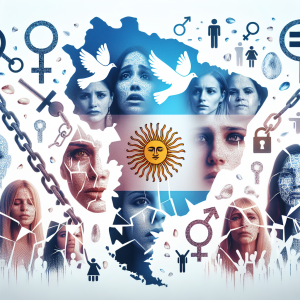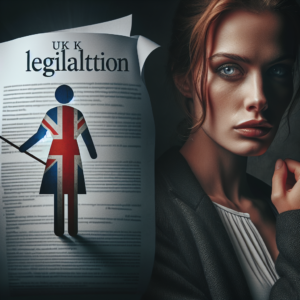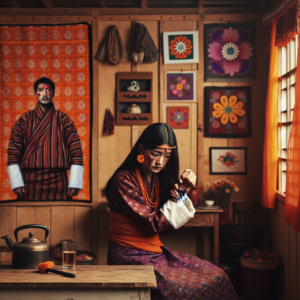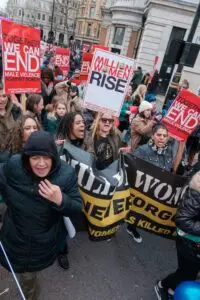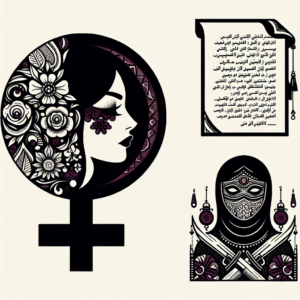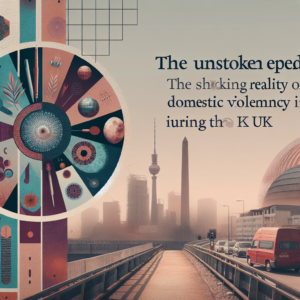#MeToo
The issue of violence against women has been a long-standing problem affecting societies globally for ages. In recent times, England has witnessed a significant surge in such incidents, capturing the attention of the nation and calling for immediate measures. This epidemic of violence not only devastates the lives of the victims but also weakens the social fabric of our communities, hindering the progress towards achieving gender equality and the protection of human rights. The aim of this analysis is to unravel the complexities of this critical issue and to muster a collective effort to eliminate violence against women in England.
A Persistent Plague
Disturbing statistics shed light on the severity of the situation, indicating a rise in domestic violence, sexual assault, and cases of coercive behavior, affecting women of all ages, from diverse economic backgrounds and various regions. The repercussions of such violence go beyond immediate physical harm, causing lasting psychological damage, financial instability, and sometimes proving fatal.
Despite advances in laws and increased awareness, the struggle continues. The ongoing violence against women reveals deep-set societal beliefs and attitudes that continue to perpetuate gender disparities and silence the victims. Addressing this issue requires a comprehensive and vigorous response from every part of society.
A Call for Collective Action
The challenge of combating violence goes beyond just legal reforms; it requires a shift in culture that reimagines masculinity, empowers women, and questions longstanding social norms. Mary Shelley, renowned for her work "Frankenstein," famously said, "I do not wish women to have power over men; but over themselves." Her statement remains profoundly relevant, underlining the need for women’s autonomy and self-governance against systemic oppression.
To advance, it’s critical to recognize the part everyone plays – including individuals, communities, governments, and organizations – in forging a safer environment for women. Actions ranging from introducing gender equality teachings at a young age to the stricter implementation of protective laws are all important steps.
Innovations and Effective Strategies
-
Educating and Empowering: Reducing the risk of violence through education and providing women with economic opportunities and legal support. Moreover, educating males on respect, consent, and gender equality is essential in transforming societal norms.
-
Community Engagement: Community-led programs focused on raising awareness and preventing violence have shown to be effective in creating supportive environments for victims and holding offenders accountable.
-
Enhancing Legal and Enforcement Frameworks: It’s critical to ensure laws against violence are comprehensive, strictly enforced, and prioritize the victim’s welfare. Training for law enforcement and judiciary members on gender sensitivity can enhance responses to violence cases.
- Vital Victim Support Services: Providing accessible, quality services such as crisis centers, hotlines, and counseling is key for victim recovery and empowerment.
Quotes from subject matter experts can add depth to the discourse, though direct quotations regarding action against violence towards women in England from renowned authors are rare. Nada Al-Ahdal, a dedicated human rights activist, adds value, stating: "Silencing the victims of violence is a double crime; it kills the soul after the body has been wounded. Standing up against violence weaves the fabric of a society valuing life, dignity, and freedom for all." @nadalahdal
Legislative Reforms: More Than Just Laws
Legislative changes are more than procedural adjustments; they represent a societal commitment to protect its vulnerable members. Reevaluating existing laws, addressing loopholes, and imposing stricter punishments on perpetrators are essential steps. However, the spirit of these laws needs to resonate with societal values and be evident in the acts of law enforcement, the judiciary, and the general public.
A United Approach
Eliminating violence against women requires a collaborative approach from governments, NGOs, communities, and individuals alike. It involves a societal vow not to overlook abuse, to support victims towards recovery and justice, and to educate future generations on equality and respect.
“Injustice anywhere is a threat to justice everywhere. We are caught in an inescapable network of mutuality, tied in a single garment of destiny. Whatever affects one directly, affects all indirectly.”
While Martin Luther King Jr. made this statement in a different context, it perfectly captures the shared struggle and responsibility in fighting against violence towards women. Addressing gender-based violence isn’t solely a women’s issue but a human issue, requiring engagement from all society members.
Conclusion: Looking Forward
Violence against women violates fundamental human rights and is a major obstacle to gender equality. As a community, we need to transition from condemnation to actionable measures to prevent such violence. This requires commitment, bravery, and an unwavering quest for justice from every societal quarter.
Though the journey ahead is challenging, it is filled with prospects for change and improvement. By promoting a culture of respect, equality, and justice, we can foster a safer and more inclusive society for all women in England. The time for action is now, and the responsibility falls on each of us. Together, we have the power and the duty to end the tyranny of violence against women.
#NadaFoundation
#domestic_violence
#Nada_Foundation
#NadaAlahdal
#Tackling #scourge #violence #women #England #call #action
tackling-the-scourge-of-violence-against-women-in-england-a-call-to-action





